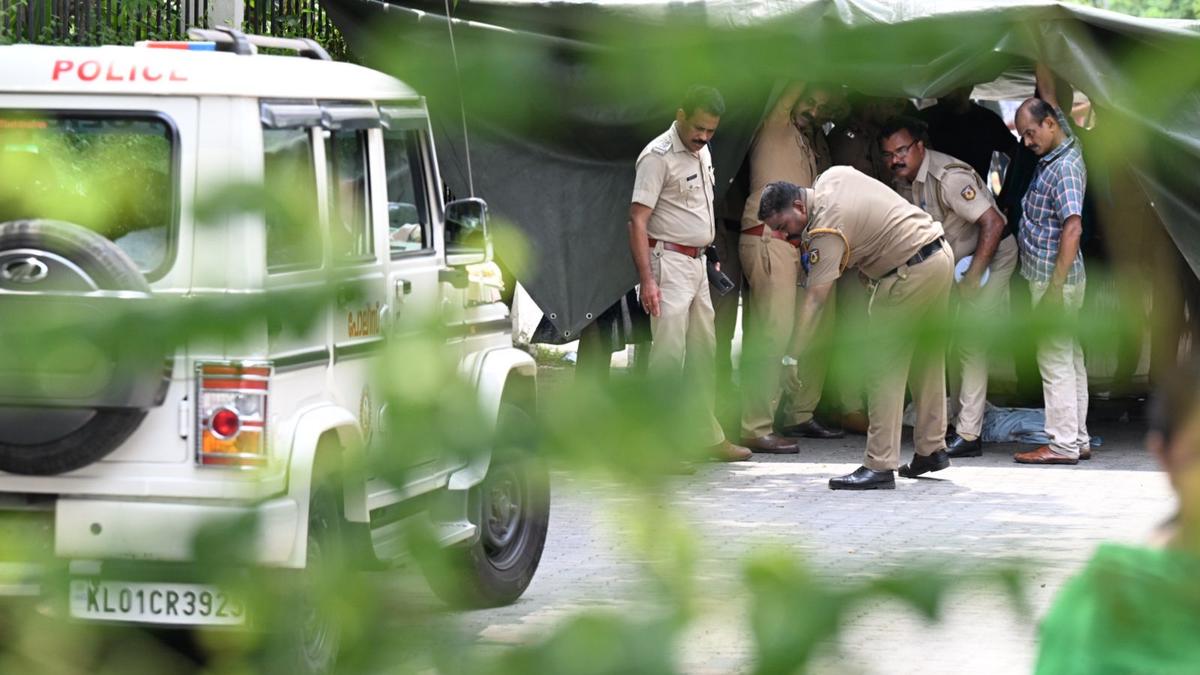
Newborn hurled to death in Kerala: A premium residential colony in Kochi is in shock
The Hindu
Baby hurled to death in Kerala: Why a premium residential colony in Kochi is in shock
When a small white bundle landed on the centre of a narrow road winding through a posh residential area in the heart of Kochi city in Kerala on May 3 morning, not many saw it. And the few who might have hardly noticed it.
In a city where people think nothing about dumping garbage wrapped in plastic covers at another’s doorstep, this could have even passed off for such an everyday act. Around 8 a.m., the peak hour traffic was also an hour away or so.
Jithin Kumar, 40, a contract driver, who happened to drive through the road around 15 minutes later, however, did take notice. “It was hard to miss since it lay right on the middle of the road,” he says.
He parked his vehicle by the side of the road and walked up towards the bundle. “I initially thought it was a doll. Only when I approached closer did I realise that there was a blood-soaked baby lying there and the cover in which the baby was packed was lying by the side. It was heartbreaking,” Jithin recollects.
Soon, a few more people gathered and an SOS was sent to the emergency response support system number 112. The police rushed to the scene around 8.30 a.m. and launched a primary investigation.
Even as the investigation was progressing, the police had blocked the road on the both sides and put up a tarpaulin tent around the body for conducting an inquest. By that time, a large crowd had assembled in the area.
Shortly, it emerged that the newborn baby boy was flung from one of the apartments nearby. The two-block apartment complex has 21 units and three of them were unoccupied.

“Writing, in general, is a very solitary process,” says Yauvanika Chopra, Associate Director at The New India Foundation (NIF), which, earlier this year, announced the 12th edition of its NIF Book Fellowships for research and scholarship about Indian history after Independence. While authors, in general, are built for it, it can still get very lonely, says Chopra, pointing out that the fellowship’s community support is as valuable as the monetary benefits it offers. “There is a solid community of NIF fellows, trustees, language experts, jury members, all of whom are incredibly competent,” she says. “They really help make authors feel supported from manuscript to publication, so you never feel like you’re struggling through isolation.”

Several principals of government and private schools in Delhi on Tuesday said the Directorate of Education (DoE) circular from a day earlier, directing schools to conduct classes in ‘hybrid’ mode, had caused confusion regarding day-to-day operations as they did not know how many students would return to school from Wednesday and how would teachers instruct in two modes — online and in person — at once. The DoE circular on Monday had also stated that the option to “exercise online mode of education, wherever available, shall vest with the students and their guardians”. Several schoolteachers also expressed confusion regarding the DoE order. A government schoolteacher said he was unsure of how to cope with the resumption of physical classes, given that the order directing government offices to ensure that 50% of the employees work from home is still in place. On Monday, the Commission for Air Quality Management in the National Capital Region and Adjoining Areas (CAQM) had, on the orders of the Supreme Court, directed schools in Delhi-NCR to shift classes to the hybrid mode, following which the DoE had issued the circular. The court had urged the Centre’s pollution watchdog to consider restarting physical classes due to many students missing out on the mid-day meals and lacking the necessary means to attend classes online. The CAQM had, on November 20, asked schools in Delhi-NCR to shift to the online mode of teaching.









